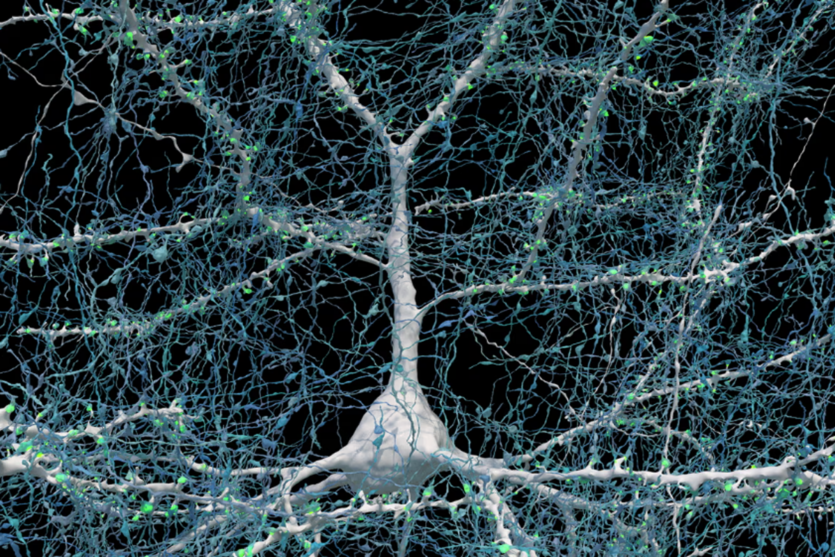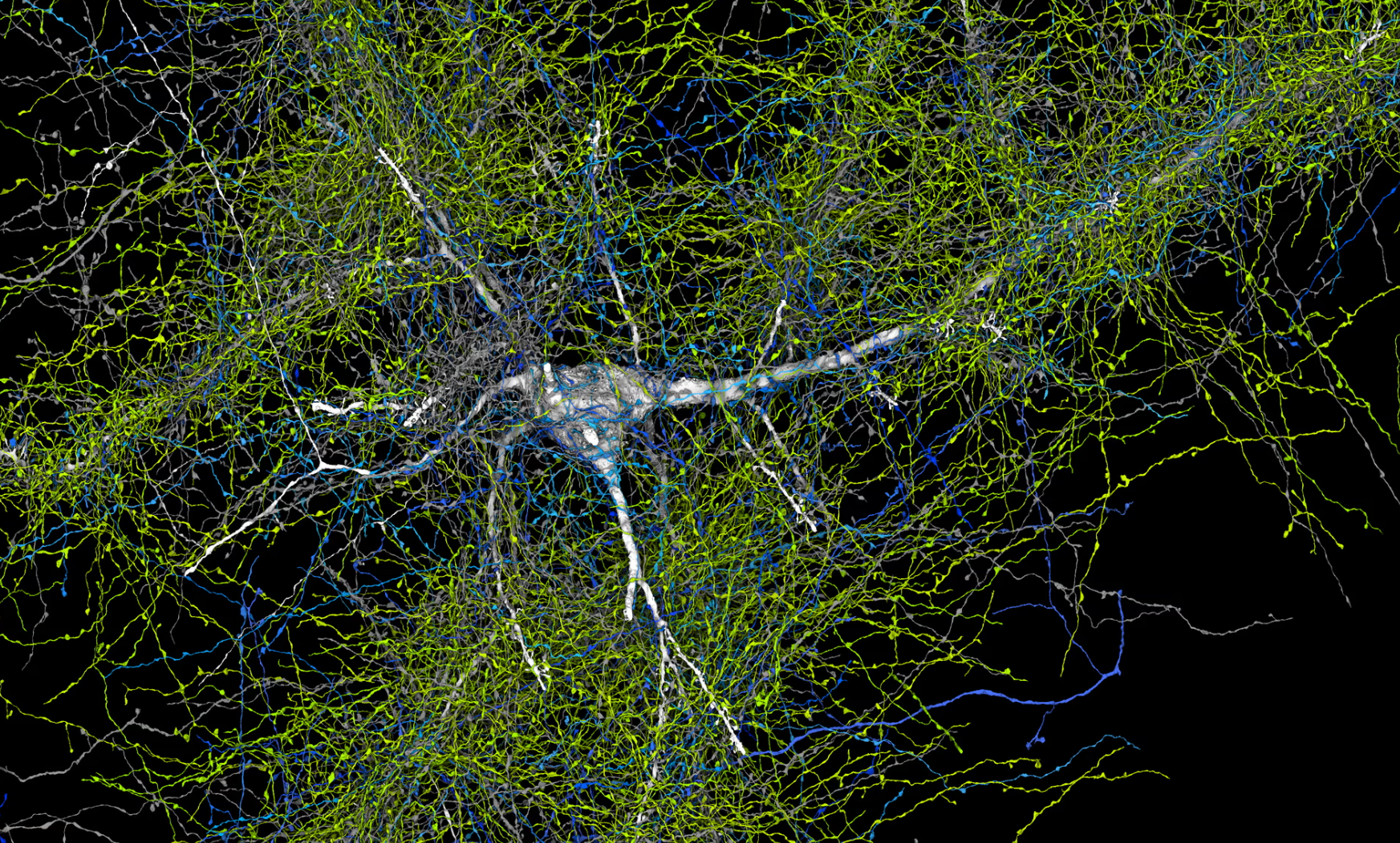
The full scan data of 1 cubic mm of the human brain took 1.4 petabytes of memory just to store the sample images. The deep dive into neural mapping was done by researchers from Harvard and artificial intelligence experts at Google. Expanding this experiment to the entire brain would take 1.6 zettabytes, the required storage would cost $50 billion, and the data center would occupy 57 hectares.
To obtain an image of the human brain, the researchers had to use Google’s machine learning technology, which saved years of work. First, the scientists cut the sample into 5000 slices, which are an order of magnitude smaller than a human hair. An electron microscope captured images of each slice, which were recombined to count about 57,000 cells and 150 million synapses. Google AI image processing technology had to be used to recombine these images and accurately map the fibers and cells.
The created images revealed many secrets about the brain. Some cell clusters grew as mirror images of each other, one neuron had more than 5000 connections with others, and some axons were tightly coiled into the shape of balls for unknown reasons. These and other discoveries made in the course of the research excited the scientists tremendously.
«We found many things in this dataset that are not in the textbooks. We don’t understand these things, but I can tell you, it means [the gap] that there is between what we already know and what we need to know», — Jeff Lichtman, Professor at Harvard University.
The human brain — is incredibly dense and very, very complex, and to map it completely using such methods would be incredibly expensive, time-consuming, and unlikely to be feasible. Just because the mapping has been done doesn’t mean that scientists will know what to do with the maps, as only a millionth of a brain will capture the attention of scientists for many years. The study was published in the journal Science.
.
Sources: The Guardian, Tom`s Hardware


Spelling error report
The following text will be sent to our editors: